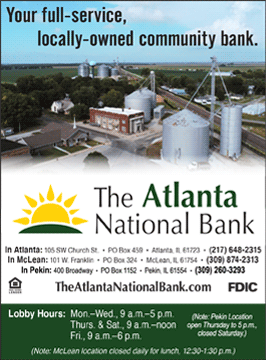August consumer confidence dips in US with jobs, tariffs and high prices
driving most unease
[August 27, 2025] By
MATT OTT
WASHINGTON (AP) — Americans’ view of the U.S. economy declined modestly
in August as anxiety over a weakening job market grew for the eighth
straight month.
The Conference Board said Tuesday that its consumer confidence index
ticked down by 1.3 points to 97.4 in August, down from July’s 98.7, but
in the same narrow range of the past three months.
The small decline in confidence was in line with the forecasts of most
of the economists who were surveyed.
A measure of Americans’ short-term expectations for their income,
business conditions and the job market fell by 1.2 points to 74.8,
remaining significantly below 80, the marker that can signal a recession
ahead.

Consumers’ assessments of their current economic situation also fell
modestly, to 131.2 in August from 132.8 in July.
While the unemployment and layoffs remain historically low, there has
been noticeable deterioration in the labor market this year and mounting
evidence that people are having difficulty finding jobs.
U.S. employers added just 73,000 jobs in July, well short of the 115,000
analysts expected. Worse, revisions to the May and June figures shaved
258,000 jobs off previous estimates and the unemployment rate ticked up
to 4.2% from 4.1%.
That report sent financial markets spiraling, spurring President Donald
Trump to fire Erika McEntarfer, the head of Bureau of Labor Statistics,
which tallies the monthly employment numbers.
[to top of second column] |
 Another government report showed
that U.S. employers posted 7.4 million job vacancies in June, down
from 7.7 million in May. The number of people quitting their jobs —
a sign of confidence in their prospects elsewhere — also fell.
More jobs data comes next week when the government
releases its August job gains and June job openings reports.
The Conference Board's report said that references to high prices
and inflation increased again and were often mentioned in tandem
with tariffs.
Other government data this month showed that while prices at the
consumer level held fairly steady from June to July, U.S. wholesale
inflation surged unexpectedly last month. Economists say that's a
sign that Trump’s sweeping taxes on imports are pushing costs up and
that higher prices for consumers may be on the way.
The share of consumers expecting a recession over the next year rose
in August to the highest level since April, when Trump's tariff
rollout began.
The share of survey respondents who said they intended to buy a car
in the near future rose, while those planning to purchase a home
remained stable after July’s decline.
Those saying they planned to buy big-ticket items like appliances
fell, but there were big variations among product categories.
Respondents who said they planned to take a vacation soon, either
inside of the U.S. or abroad, also declined.
All contents © copyright 2025 Associated Press. All rights reserved
 |